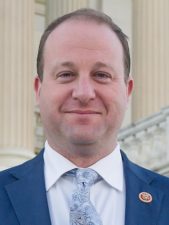 Colorado Gov. Jared Polis (D) clearly appreciates good journalism and supports a free and independent press. But it’s also clear he hasn’t thought very deeply about public notice and he is too confident of his understanding of the issue.
Colorado Gov. Jared Polis (D) clearly appreciates good journalism and supports a free and independent press. But it’s also clear he hasn’t thought very deeply about public notice and he is too confident of his understanding of the issue.
We base that judgment on extemporaneous remarks Colorado’s chief executive made during an April 17 press conference on the state’s response to COVID-19.
With about 15 minutes remaining in the press conference, Denver Post reporter Alex Burness asked the governor for his thoughts on the impact of news deserts in the state and whether he believes government support or funding of the news business is appropriate.
Cuomo uses emergency powers to suspend notices
 Before it approved a budget in the early morning hours and left Albany last month as the coronavirus first struck the state with full force, the New York legislature granted Gov. Andrew Cuomo (pictured at left) emergency power to suspend laws he believes compromise public health. The governor has not been shy about exercising his new exigent authority.
Before it approved a budget in the early morning hours and left Albany last month as the coronavirus first struck the state with full force, the New York legislature granted Gov. Andrew Cuomo (pictured at left) emergency power to suspend laws he believes compromise public health. The governor has not been shy about exercising his new exigent authority.
On April 20, Cuomo issued an executive order that, among other things, allowed cities and towns in the state to file property tax assessment rolls up to 30 days later than the June 1 statutory deadline, and authorized them to publish the assessment notices “solely online so long as the date for hearing complaints is prominently displayed”.
The danger of suspending publication during the COVID-19 crisis
 The town of Glastonbury, Connecticut announced last week it would begin publishing public notices on its website in lieu of the newspaper notice normally required by law, according to Manchester’s Journal Inquirer. In its statement, Glastonbury cited an emergency order issued on March 21 by Connecticut Gov. Ned Lamont (D) that “suspended and modified” the state’s public notice laws to allow notices “to be published electronically on a municipality’s or agency’s website”.
The town of Glastonbury, Connecticut announced last week it would begin publishing public notices on its website in lieu of the newspaper notice normally required by law, according to Manchester’s Journal Inquirer. In its statement, Glastonbury cited an emergency order issued on March 21 by Connecticut Gov. Ned Lamont (D) that “suspended and modified” the state’s public notice laws to allow notices “to be published electronically on a municipality’s or agency’s website”.
What’s happening with foreclosure notices?
 COVID-19 is wreaking havoc on life as we know it. Little has been left untouched, including the mortgage market and foreclosure process.
COVID-19 is wreaking havoc on life as we know it. Little has been left untouched, including the mortgage market and foreclosure process.
At the federal level, the Federal Housing Finance Agency (FHFA), which oversees Fannie Mae, Freddie Mac and the Federal Home Loan Banks, is providing payment forbearance for up to 12 months to borrowers impacted by the crisis. FHFA also directed Fannie and Freddie to suspend foreclosures for at least 60 days. The Department of Housing and Urban Development also suspended evictions and foreclosures until the end of April.
Many state and local governments are also offering relief to borrowers affected by the crisis.
